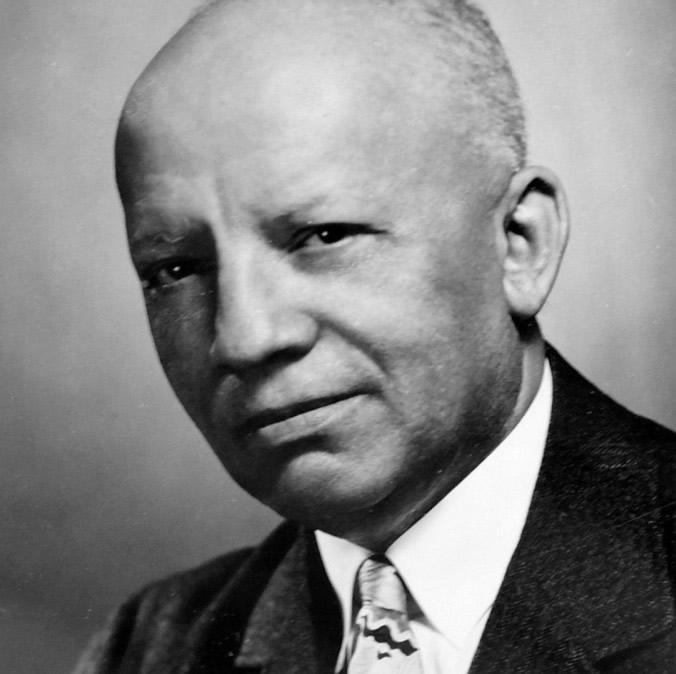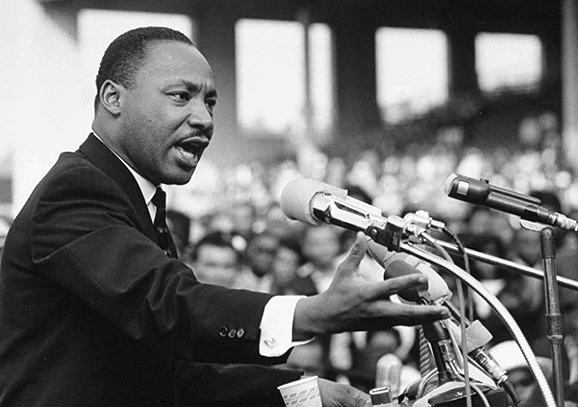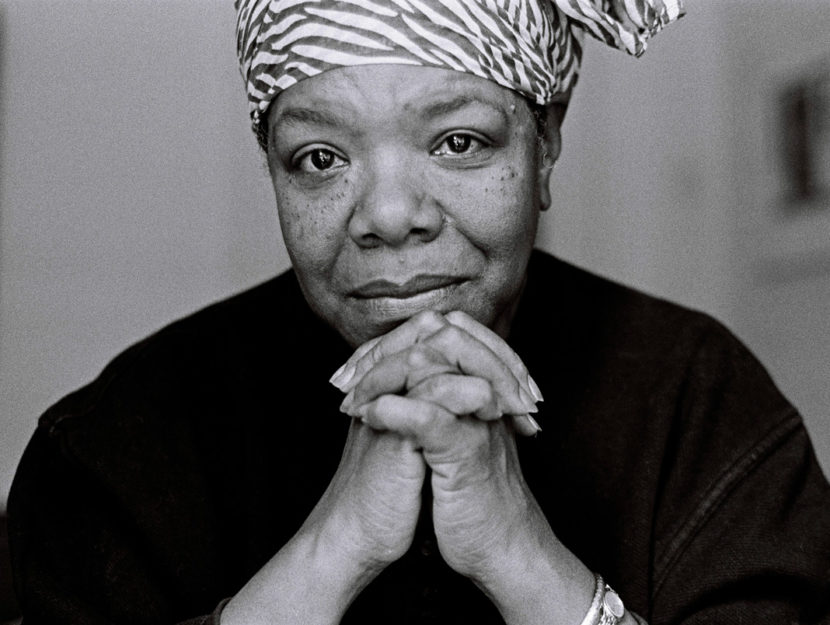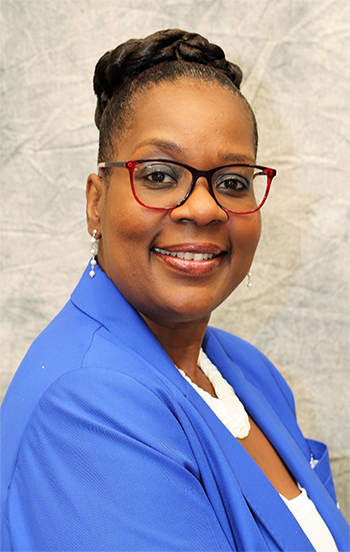

It all began when a Harvard graduate/historian named Carter G. Woodson, who is known as the “Father of Black History,” decided to src="assets/images/71_news.png">celebrate one week, calling it “Negro History Week” – a celebration of Black people that many in the country at the time believed had no place in history. It started the second week of February to coincide with the birthdays of Abraham Lincoln (February 12) and Frederick Douglass (February 14).
Since 1976, every U.S. President has formally recognized and honored the month of February as a celebration now called Black History Month. It has been celebrated across the country in schools, community service centers, etc., since President Gerald Ford stated in his message on the observance of Black history in 1976, “We can seize the opportunity to honor the too-often-neglected accomplishments of Black Americans in every area of endeavors throughout history.” Additionally, President Barack Obama, during a Black History Month reception in 2016, shared that, “It’s about the lived, shared experience of all African Americans, high and low, famous and obscure, and how those experiences have shaped and challenged and ultimately strengthened America.”
Many believed that Black history should be celebrated every day, all day, all year long. We must remember the history and contributions, as well as promote and educate people about the determination, focus, struggles, movement, and rich culture of African Americans throughout time.
While there are many influential African Americans in history who have helped put an end to segregation and inspired hope for all people, I want to mention a couple:
 Dr. Martin Luther King, Jr.
Dr. Martin Luther King, Jr.
As a leader of the American Civil Rights Movement and head of the Southern Christian Leadership Conference, Dr. Martin Luther King, Jr. was an advocate for nonviolent methods of protest, and organized and staged countless marches and boycotts, including the Montgomery bus boycott and the March on Washington in 1963. His most famous work is his “I Have A Dream” speech, delivered in 1963, in which he spoke of his dream of a United States that is void of segregation and racism. A federal holiday honoring the legacy of Dr. King, which “focuses on the issue of civil rights; highlights the use of nonviolence to promote change; and calls people into public service” (The National Constitution Center), was approved in 1983 (all 50 states made it a state government holiday in 2000) and is observed on the third Monday in January, which is now known as MLK Day. Dr. King was also the youngest person to have won the Nobel Peace Prize in 1964 for his nonviolent struggle for civil rights for the Afro-American population.
A famous quote from Dr. Martin Luther King, Jr. that defines the meaning of community service states, “Everybody can be great…because anybody can serve. You don’t have to have a college degree to serve. You don’t have to make your subject and verb agree to serve. You only need a heart full of grace. A soul generated by love.” Lifespire has been and continues to be in the service movement for over 70 years, showing grace and love to New Yorkers with intellectual/developmental disabilities. We are the heart (or essence) of service every day, making a difference in the lives of people.

Maya Angelou
Maya Angelou, an award-winning legendary author, poet, civil rights activist, college professor and screenwriter who had a disability, inspired so many, particularly every Black woman, with her voice. She passed away in 2014 but is remembered and honored for her hard work and perseverance.As a child, Maya Angelou was sexually abused and raped by her mother’s boyfriend. Once this information was shared with the family, the boyfriend was found guilty, but only spent one day in prison. Four days later, he was murdered. As a result, Maya Angelou became mute for almost five years. She suffered from selective mutism, an anxiety disorder that causes a child to not speak due to physical and psychological trauma they endured (respectability.org). Throughout her childhood, she wrote essays and poetry and kept a journal. She memorized works by Shakespeare and Poe. At the age of fifteen, she applied for a position as a streetcar conductor, particularly since many men left their jobs to join the armed services. However, Maya Angelou was barred from applying at first because of her race. This did not stop her. Every day for three weeks, she requested a job application. Eventually she became the first African American woman to work as a streetcar conductor in San Francisco.
Later in life, she became active in the civil rights movement and served as the northern coordinator of the Southern Christian Leadership Conference, where she became close with and worked with Malcolm X.
Maya Angelou accumulated many awards and honors throughout her life. She is most famous for her award-winning autobiographical book, I Know Why The Caged Bird Sings, which is about her upbringing in the South. While many schools wanted to ban the book because of its portrayal of sexual abuse, it was nominated for the National Book Award, sold over a million copies nationwide and has helped other abuse survivors tell their stories. Her most notable recognition of her remarkable and inspiring career in the arts was in 2011 when President Barack Obama awarded her the Presidential Medal of Freedom, the country’s highest civilian honor.
One of Maya Angelou’s most inspiring and uplifting quotes that is relatable to the work of Lifespire states, “I’m convinced of this: Good done anywhere is good done everywhere. For a change, start by speaking to people rather than walking by them like they’re stones that don’t matter. As long as you’re breathing, it’s never too late to do some good.” It is rewarding to work for an organization like Lifespire that believes its purpose is to always do good to the people we support and promote its vision that “everyone lives with dignity and respect in a world full of choices and possibilities.”
 There are numerous African Americans who helped change the world. Even recently, there are leaders who have made history and stand on the shoulders of those who came before them. To name a few, Kamala Harris, first Black, first South Asian American and first woman Vice President; Rosalind Brewer, only Black woman who currently leads a Fortune 500 firm (Walgreens); Dr. Kizzmekia S. Corbett, lead scientist on the Moderna COVID-19 vaccine team; Nicholas Johnson, Princeton’s first Black valedictorian; Jason Wright, first Black president of a National Football League team; Amanda Gorman, youngest inaugural poet in U.S. history, and there are many more.
There are numerous African Americans who helped change the world. Even recently, there are leaders who have made history and stand on the shoulders of those who came before them. To name a few, Kamala Harris, first Black, first South Asian American and first woman Vice President; Rosalind Brewer, only Black woman who currently leads a Fortune 500 firm (Walgreens); Dr. Kizzmekia S. Corbett, lead scientist on the Moderna COVID-19 vaccine team; Nicholas Johnson, Princeton’s first Black valedictorian; Jason Wright, first Black president of a National Football League team; Amanda Gorman, youngest inaugural poet in U.S. history, and there are many more.
Looking back on the lives of Dr. Martin Luther King, Jr. and Maya Angelou reminds me that we all make a difference; how much of a difference often comes down to the limits that we place upon our own lives. When I began working at Lifespire 21 years ago, I did not anticipate that one day I would be heading up the Human Resources Department for this incredible agency that began 70 years ago. But day by day, month by month, and year by year the boundaries expanded, and today I believe that the work that we do here at Lifespire truly makes a huge difference in the lives of hundreds of people every year. Today I am serving Lifespire as the first female African American to be on the Executive Team. I’m grateful but also I’m not finished. There’s a lot more to do for those who will follow in my footsteps.
So we celebrate Black history to remember the legacy, the lessons, and the lasting contributions of those who made an impact to this world yesterday and even today, and it is because of all of them that I can proudly say…I AM BLACK HISTORY!

Cassandra Dancy-Potts
Lifespire, Inc. – Vice President for Human Resources